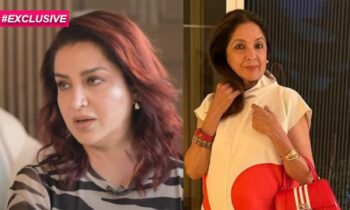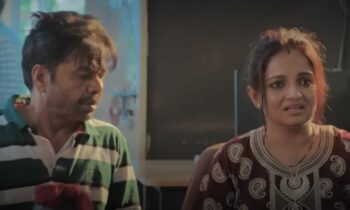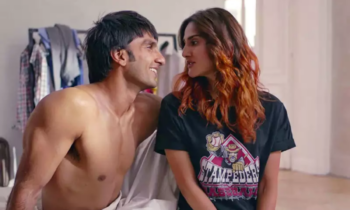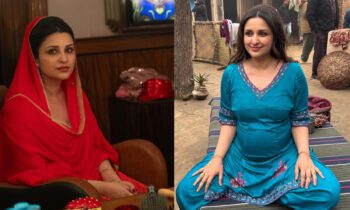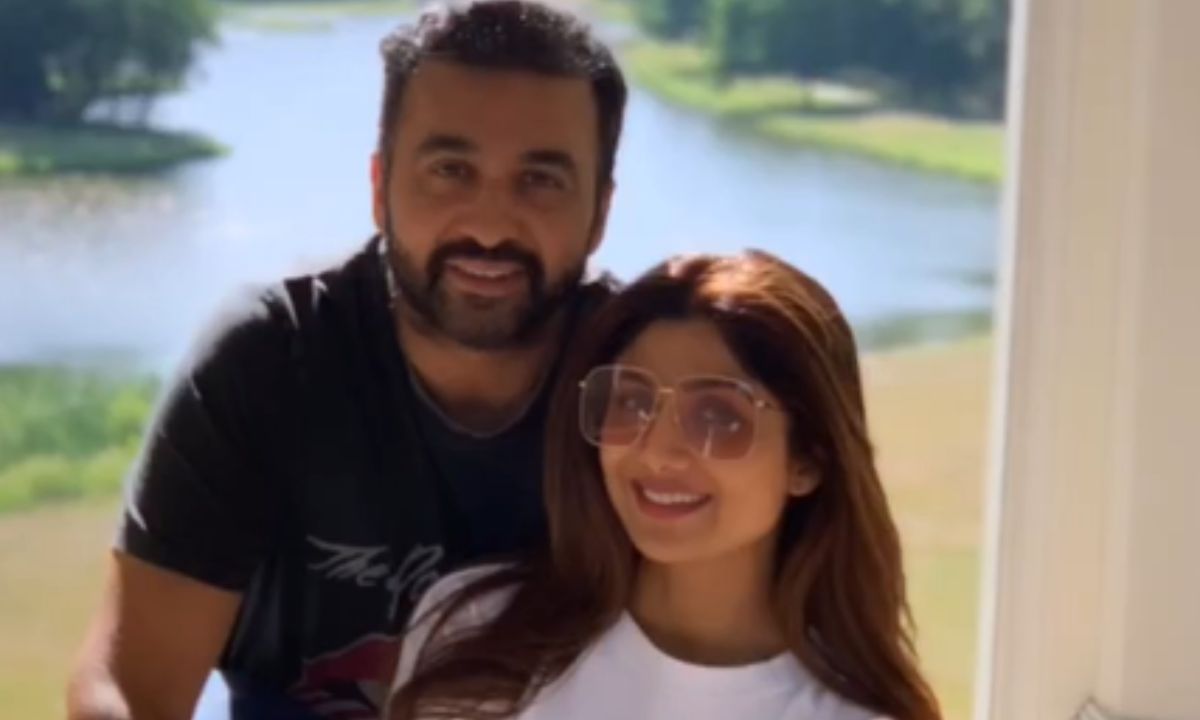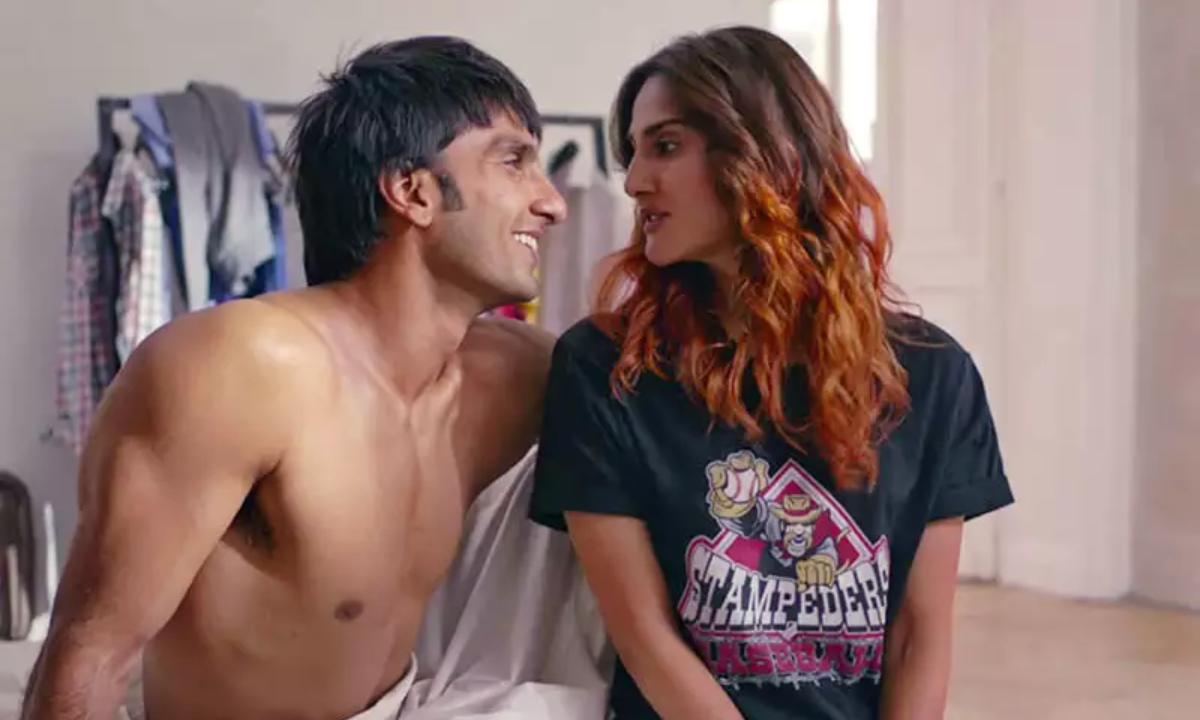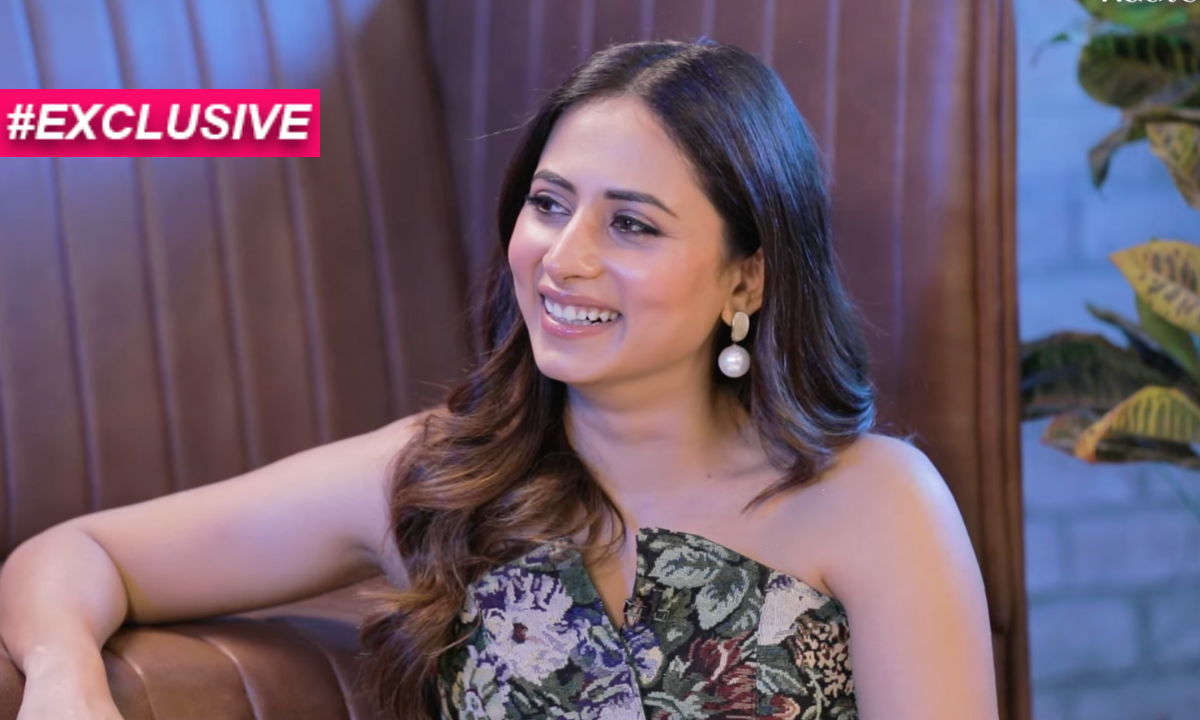Can We Talk About How The Big Day On Netflix Promotes Sexist Stereotypes About Women?
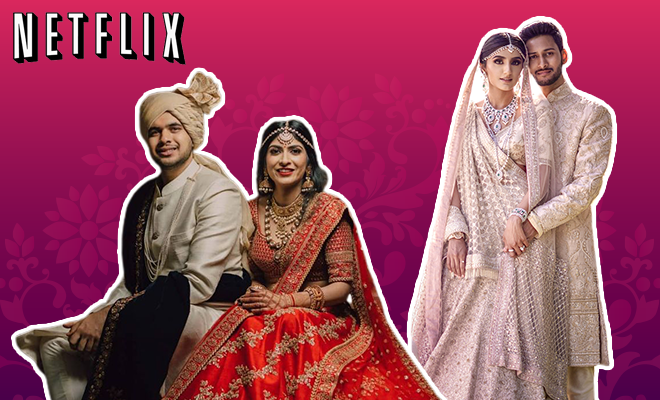
Netflix India’s latest offering, The Big Day, is a show that claims to be a deep dive into the multi-billion dollar wedding industry, through the stories of six couples and their extravagant weddings. The reception to the show has been lukewarm compared to the massive social media critique that stirred up when Indian Matchmaking was released. Could it be so because the sexism and misogyny was more overt in the latter than in The Big Day? Because clearly, while The Big Day will have us believe that modern weddings are all about doing away with regressive traditions and customs and reflective of a couple’s personality, all I saw staring back at me in the mirror was ingrained sexism that has taken root so deeply, that it can get hard for most people to spot that it’s there.
Let’s call it like it is. Weddings are sexist AF. Not marriage, not when distilled to its purest essence, which is basically an equal partnership between two individuals (of any gender), built on friendship, trust and compromise. But when the grand inauguration event of this relationship is only unbalanced, then how do we expect marriage to respect equality? Think about it, the whole ‘ladkiwale’ and ‘ladkewale’ segregation begins on the rishta stage and planning of the wedding. And it never ends. Every single wedding custom—from kanyadaan to the daughter changing her home, surname, her signature, her sleeping/eating habits, her entire personality—reeks of inequality.
It might have flown in the past. But the current generation of women (and men), which is educated, financially independent, feminist and fiercely political… do you think they’d be okay with this celebration of inequality?
Surprisingly, and for the most part, yes. Otherwise, the wedding industry wouldn’t be so ‘multi-billion dollar’ now, would it? The industry caters to the whims and fancies, a lot of them outrageously exorbitant, of the families entering into this union. But none is more entrapped in its allure than… yep, you guessed it right, the bride.
There’s this film called Bride Wars, starring Anne Hathaway and Kate Hudson, who play two best friends that have always dreamt of each other’s wedding day being absolutely perfect since they were playing with dolls. That should’ve been our first cue of how problematic it is that this conditioning of the perfect day and the importance of being a bride begins so early when girls are this little. Anyhoo, by a cruel twist of fate, and limited availability of their dream venue, both BFFs turn bridezillas and enter into the ruthless titular bride wars, where they will be taking no prisoners.
What happens? They sabotage and hurt each other, they’re both sad that they cannot attend their best friend’s wedding and one ends up breaking her engagement because she realises the wedding planning has turned her into a person she is not.
The reason I delved deep into Bride Wars is that while it is essentially a hilarious rom-com, it does reveal the real reason why a bride turns into a bridezilla. It’s a stupid, sexist word, isn’t it? Bridezilla. Why do we call women that and blame and shame them for turning into these hyper neurotic control freaks obsessed with their wedding day being perfect when we’ve been conditioning them to believe that in the first place, all their life?
Also Read: Throwback Thursday: Bollywood Movies That Reinforce Stereotypes And Show Women Suffering Through Bad Marriages
What’s even more disgusting is that we heap on them this idea that the wedding is really all about them, all about the bride. You want peacocks flanking the wedding mandap while your dulha parachute jumps into the venue, smack in the middle of a thousand and one rare roses grown specially for this occasion? Done. You want a Sabyasachi lehenga you’re never going to wear in your life again? Let mummy papa/or you spend their life savings getting that for you. You want the best wedding photographer to make your wedding video which definitely won’t turn out like Virushka’s but you still think it will be? Yep, we’ll get that for you.
But by doing that, we play even further into the sexist notion that a bride is actually the only one who gives two shits about her special day. Which then, allows everyone else to conveniently wash their hands off caring about what is what. I mean why aren’t boys so excited about their wedding day? And I don’t mean the bachelor party or sangeet performance. But really think how many boys are actually putting in the same kind of effort in planning a wedding as the girls are.
Pick any sangeet performance where the couple’s dance comes on. In most cases, the girl will be grace personified and have practiced all steps, even when she is tired and sleep deprived from the previous night’s mehendi function where she had to sit in one position for 6 hours to get her henna on. And she’ll still be amazing. The guy, who plans to lead his soon-to-be-wife in major life decisions from here on, cannot lead her in a dance also because he didn’t find time to practice the steps. Sigh.
Of course, this is just a very superficial example. But if you’re telling me that you do not see the ingrained sexism in the wedding functions which are rooted in patriarchy, then you’re kidding us both.
Also Read: The Big Day Review: The Show Is Basically A Showcase Of A Big, Fat Indian Wedding. It Called Me Poor And Unprepared In 7 Languages
Type A Brides!?!
Look at The Big Day. We meet these brides who’ve assumed control of all the wedding festivities. The wedding planners are there to execute whatever vision these brides have, no matter how bizarre or ridiculous. And these soon to be married women are armed with excel sheets and research they must’ve put together since years now to ensure that the day is perfect. They take pride in being called ’Type A’ brides, and think it is an extension of their Type A personality. Meanwhile the grooms claim to let their brides handle everything because “brides know weddings best”.
The entire show, for a majority of it, is all about the bride’s vision, what she wants, what she doesn’t want, and how everyone is letting her do what she wants. It’s repeated ad nauseam how she is a perfectionist and everyone has a love-hate relationship with how she has taken charge of this whole event. You cannot be sure if it is genuine relief on their faces that they don’t have to help out, or are they just saying they love the bride’s intense planning skills because the camera is on. The fact of the matter is, it’s all about the bride.
But why aisa? Why is all the onus on the bride? Why are the grooms also not equally hyper and taking charge? Why isn’t he weighing in on how he wants a certain decor only or doesn’t want kanyadan because he isn’t receiving his bride as some property gift from her parents. Bhai tumhari bhi koi khwaaish hogi na about your wedding celebration? No? Oh is it because when you were little, nobody drilled notions and aspirations about your ‘big day’ in your developing brain? Or is it because you were told that these are frivolous things that men don’t need to be too concerned with, unless you are ladkiwalon ki side se? Lucky you, dude.
Honestly, it feels like such a sorry state of affairs that a woman has to be so competitive or feel the need to make a big deal about her wedding day. Imagine that’s how she steps into her ‘new life’, with stress and anxiety. The problem isn’t that she is a Type A bride, the problem is you left her no other option. We created this monster that we mockingly like to call ‘The Bridezilla’ because we conditioned women to think their wedding is ‘The Big Day’ for them for all the wrong motivations. And then we also complained that the bride takes forever to get ready but ‘uska haq banta hai‘ because ‘uska special day hai na‘. Nice. Real nice.
Then, something very funny happens. At the end of Episode 2 of The Big Day, which is ironically devoted to Type A brides who’re trying to modernise the traditional wedding customs, one of the brides says that weddings shouldn’t be thought of as the most important day of your life. In fact, throughout the show, we see requirements from the brides like a ‘female pandit’, ‘no kanyadaan’, ‘no mehendi’, ‘the bride also tying a black thread on the groom signifying the mangalsutra’ and so on. These are actually really sweet moments, especially when you realise that the bride and groom’s families have agreed to them. Because we all know how that’s not going to be easy!
And yet, a part of me wanted to be patronising about it all. Why? Because I wondered, would these small revisions even make a difference when the problem was with the idea of the ‘wedding’ itself being a patriarchal concept?
Also Read: Dia Mirza Had A Woman Priest For Her Wedding And We Love How She’s Smashing Patriarchy
Now I know what you’d say. Feminism also means respecting other women’s choice. And to that, I agree, yes ma’am, I do. But when the core of that fruit is only rotten, does it matter if you’re eating it from the right or the left?
Feminism As A Concept Needs To Be Redefined
Let me explain with a more relatable example. Observing a Karwa Chauth fast or wearing the burkha are patriarchal in its origin and devices of pure misogyny. But then arrived this hybrid mentality that said feminism dictated that we need to respect women’s choices of wearing a burkha and observing a fast for their husband’s long life, because it was tied to emotions. And in case of Karwa Chauth, a need to flaunt #DesiPride on Instagram stories, a trend that has made the younger generations do a lot of things that the older generations fought not to do.
I mean, seriously? How can you use choice and emotions to modernise and convert into progressive two practices that are inherently pure misogyny? It doesn’t matter if you do these things because you’re forced to or you choose to. It is an illusion that makes you think your choice is you defying oppression, when it actually is years and year of ingraining that patriarchy which has welded your emotions to wearing the burkha or dying of hunger for your husband’s health!
I often quote this Ratna Pathak Shah interview when I talk about how regression has managed to creep back into feminism. She talked about how their generation of women rebelled against such practices like Karwa Chauth and women being made to feel special on their wedding day for all the wrong reasons. And when she sees who the younger generation is using the argument of choice to bring these customs back, it feels like their efforts went to waste. And it’s true isn’t it?
I have so many girl friends who don’t give two thoughts about these issues and think ‘this too much feminism’ just takes the fun out of everything. They like falling prey to insecurities of their friend’s lehenga being more ‘expensive’ than theirs, or and feeling compelled to participate in the latest fads like pre-wedding shoots and elaborate party favours for every wedding function because if they don’t, their wedding won’t be as good, memorable or exciting. I’ve even seen some shaadis where the NRI dulha doesn’t even arrive in the country until ten days before the wedding, and until the bride-to-be has undertaken at least 10 shopping trips, 20 bridal outfit and makeup trials and attended 30 sangeet practices solo. You think that would work if the roles were reversed?
Little do they realise that while they spend tremendous money and effort over all these things, their wedding guests won’t really care about the 15 songs in your sangeet but are going to crib about the food and the long queue for the stage at the reception. And all their friends are going to do is click group selfies in the background, with you being the most coveted photo booth prop for the evening.
In this time of showing off and making a spectacle for the world and its cameras, we’ve forgotten that marriage is more important than wedding. So don’t get me wrong here. I am not some bitter-hearted person who thinks marriages are a sham. No, I think marriage is a beautiful institution, and celebrating the life event is not wrong. But just as a husband wants to have a say in a marriage, sometimes more than the wife, and want to take decisions in a marriage, why won’t men equally share the load in their weddings too? Can we make weddings also about equal partnerships and not a sexist deal where the bride and her family do all the heavy lifting, because they’re under a spell that it has to be perfect?
You’ll find this item at the ‘Hard to swallow pills’ food counter. Taste zaroor karna, it’s a rare dish at weddings.
https://thehauterfly.com/relationships/7-expectations-millennials-have-from-marriages-and-relationships-according-to-a-study-this-is-refreshing/










